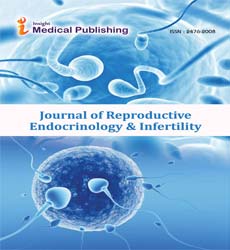Resident Experience on Reproductive Endocrinology and Infertility
Heather G. Huddleston MD
DOI10.36648/2476-2008.2021.6.22
- *Corresponding Author:
- Heather G. Huddleston
Department of Obstetrics, Gynecology, and Reproductive Sciences, University of California at San Francisco, San Francisco, CA
E-mail: huddlestonh@obgyn.ucsf.edu
Received Date: July 06, 2021; Accepted Date: July 10, 2021,; Published Date: July 22, 2021
Citation: Huddleston HG (2021) Resident Experience on Reproductive Endocrinology and Infertility. J Rep Endo Infert. Vol.6 No.4: 22.
Editorial
To estimate the extent to which duration and quality of reproductive endocrinology rotations are associated with residents' knowledge of reproductive endocrinology and infertility. The Accreditation Council for Graduate Medical Education (ACGME) Program Requirements for Graduate Medical Education in Obstetrics and Gynecology states that “A residency program in obstetricsgynecology must be a structured educational experience. While such residency programs contain a patient-service component, they must be designed to provide education as a first priority.” ACGME also requires residency programs to have an educational curriculum containing training in reproductive endocrinology and infertility.
Exposure to reproductive endocrinology and infertility, usually in the form of subspecialty rotation(s), differs in structure between programs. However, it is not known whether the structure of the rotation and subsequent resident experience affects accumulation of reproductive endocrinology and infertility knowledge.
The Society for Reproductive Endocrinology and Infertility (SREI) sought to estimate current and past resident knowledge in this area. By examining CREOG In-Training Examination results between 2004 and 2007, they observed that residents were answering fewer answers correctly in reproductive endocrinology and infertility compared with the overall examination. In addition, they perceived a decline in correct answers to specific questions on reproductive endocrinology and infertility, with declines observed in the specific areas of infertility and reproductive endocrinology and no change observed within the areas of menstrual and endocrine disorders and basic reproductive endocrinology.
Information collected in the survey included time on the reproductive endocrinology and infertility rotation per year, number of hours of didactic education per week on reproductive endocrinology and infertility, vacation policy for the rotation, coverage of other duties while on reproductive endocrinology and infertility rotation, and Sunday through Thursday night call while on the rotation. All responses were multiple choices. “Not applicable” responses were coded as missing within the analysis.
This study demonstrates that, subjectively, residents are noting inadequate knowledge in reproductive endocrinology and infertility. Forty percent of residents in obstetrics and gynecology consider themselves to have poor knowledge of reproductive endocrinology and infertility. Although the risk was higher in junior level residents, 40% of senior level residents considered themselves to have only poor or adequate knowledge of reproductive endocrinology and infertility. Low CREOG scores (42%-67% correct answers) in reproductive endocrinology and infertility topics would appear to corroborate resident perceptions. These findings would imply that not all residents are gaining appropriate knowledge in this area during residency.
A basic understanding of reproductive endocrine and infertility is vital for the generalist in an outpatient practice. While the generalist spends the majority of their time in the outpatient setting, most of residency is dedicated to inpatient training. Reproductive endocrinology and infertility rotations, in general, provide a unique opportunity for mentored training in an outpatient setting. Menstrual cycle irregularities, climacteric complaints, androgenic disorders, and basic infertility are common issues brought to the general gynecologist for diagnosis and treatment.
Open Access Journals
- Aquaculture & Veterinary Science
- Chemistry & Chemical Sciences
- Clinical Sciences
- Engineering
- General Science
- Genetics & Molecular Biology
- Health Care & Nursing
- Immunology & Microbiology
- Materials Science
- Mathematics & Physics
- Medical Sciences
- Neurology & Psychiatry
- Oncology & Cancer Science
- Pharmaceutical Sciences
